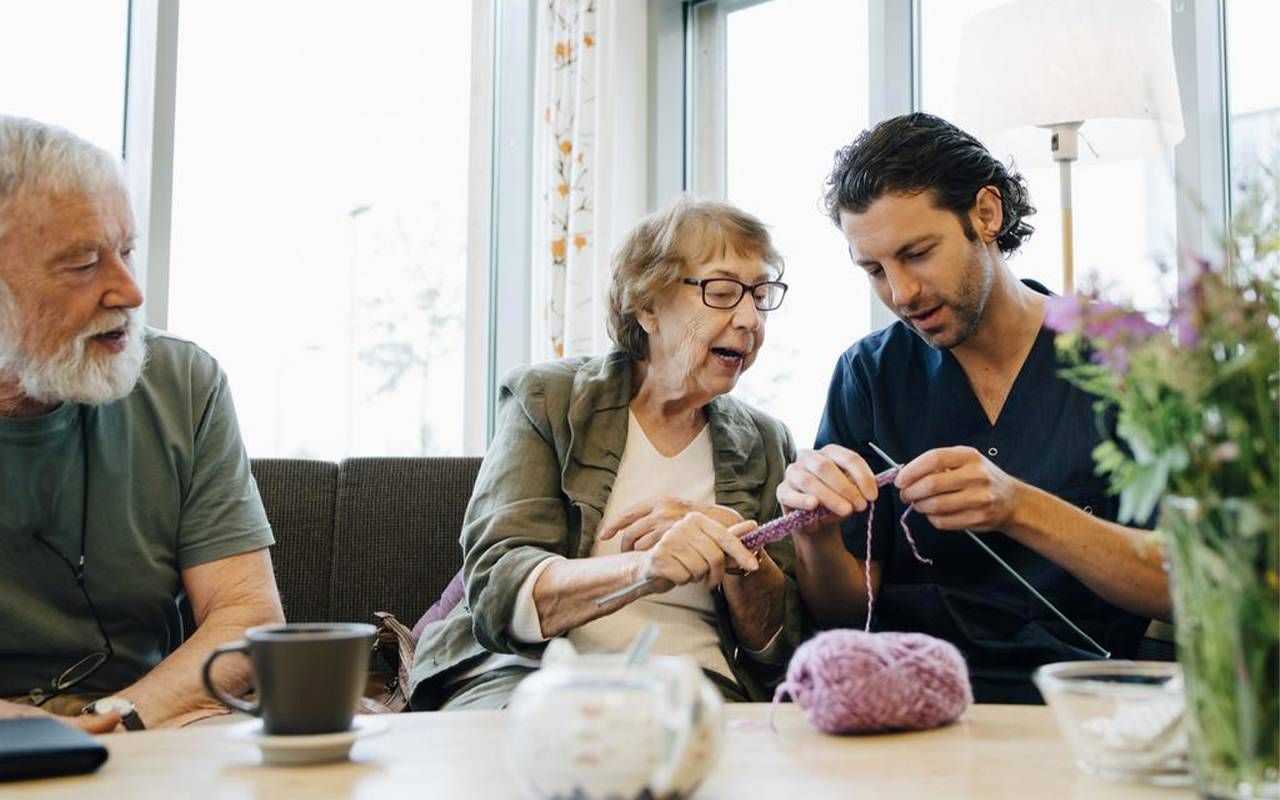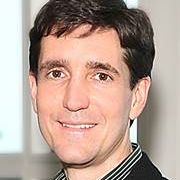Breaking Gender Barriers: The Role of Male Caregivers
Men are forming a growing brigade of the caregiving community — discover how they differ from female caregivers and where they find strength and support
What image comes to mind when you think of caregiving? The answer is typically a middle-aged woman. Daughters usually step in as the primary caregiver when parents need care. Women still shoulder most caregiving responsibilities, but men today increasingly play a more significant role.

A 2020 report by AARP and National Alliance for Caregiving (NAC) estimates that male caregivers represent about 40% of the 53 million caregivers nationwide. In addition, many experts predict that men will increasingly get more involved as caregiving transcends traditional gender norms.
Male caregivers represent about 40% of the 53 million caregivers nationwide.
"Men are more willing to step up and get involved," says Dr. Barry Jacobs, a Philadelphia-area clinical psychologist, family therapist and health care consultant. "There's also a societal shift happening where it's less of a shock when a man does the caregiving."
You'll likely see more female speakers and women in the audience at caregiver conferences, but that is slowly changing. "Over the past few years, I've started to see more men participate in meetings, share their experiences, and recognize their role to care for loved ones in need," according to Aaron Blight, founder of Caregiving Kinetics and a former caregiver to his mother-in-law who suffered from cognitive decline related to a brain tumor.
The Better Life Lab, the work-family justice and gender equity program at the New America Foundation, studied the experiences of 2,966 men as fathers and caregivers. The research showed that many men value care and caregiving and think it's as important as paid work. Moreover, contrary to conventional wisdom, most men say caregiving work is rewarding.
Another key research finding was that men needed and wanted time off from work for caregiving responsibilities in the same ratio as women. "Men were less likely to do so only if they had paid leave," says the Better Life Lab director Brigid Schulte.
"Women, in contrast, were forced to take leaves, whether paid or unpaid, because, without the support of their partners, someone had to take time off work to provide care."
Recognize Gender Differences
There are many similarities between male and female caregivers regarding the feelings they experience, like frustration, loneliness, grief, guilt and lots of stress. However, one significant difference is that men find it harder to open up about their feelings or can be less likely to admit emotional stress and are more likely to experience symptoms of depression.
"Unlike female caregivers, men are not seeking professional help to cope with caregiving," says Jacobs, the primary caregiver for seven years to his mom, who had vascular dementia, and a stepfather diagnosed with Alzheimer's.
"There's also a societal shift happening where it's less of a shock when a man does the caregiving."
Men and women share similar responsibilities in terms of household duties, but they handle them in different ways. "Male caregivers often times focus more on tasks as they do in their jobs," says Monika Lopez-Anuarbe, who led research that examined the role of male caregivers at the Connecticut College in New London.
"Research is mixed on whether male caregivers help with tasks that are considered less nurturing, but there's growing evidence that caregiving responsibilities are becoming less gendered," notes Lopez-Anuarbe.
Men are generally more uncomfortable handling personal care issues like bathing, dressing, diapering and toileting, and are less involved in helping with medications. As a result, they often seek assistance from paid help and home health aides. For example, according to the AARP-NAC report, 24% of male caregivers helped a loved one get dressed compared to 28% of female caregivers, and 16% of male caregivers helped with bathing versus 30% of females.
The stereotypes that distinguish men as being less emotional, less connected with friends and wanting to fix and control things often translate into how they approach their unique role as caregivers, says Beverly Kidder, Ph.D., the author of "The Gift of Caregiving."
"Men are more comfortable with action-oriented caregiving than relationship-type caregiving," she explains. "They like having a to-do list and getting tasks done rather than sitting around talking."
Embrace New Roles
As men take on caregiving roles, there are sure to be new responsibilities that they will need to learn. In addition, men often feel caught off guard in their caregiving roles, especially if their spouse has assumed the lion's share of the more personal aspects of childcare or caring for an elderly parent or relative, says Monica Moreno, senior director of care and support at the Alzheimer's Association.
Dale Hershey, who cares for his wife Martha, who has disabilities, remembers feeling unprepared when his wife could not handle the household responsibilities. "We own a second house that we rent out to guests, and putting the finishing touches with decorating and buying curtains and bedspreads was really new to me," Hershey says.
Many people who find themselves in caregiving roles come to it with many questions and are forced to take on new roles. Men are more willing to delegate work to others, explains Kidder. "Male caregivers don't feel like failures when they bring in help and instead think they are fixing something."
"Men are more comfortable with action-oriented caregiving than relationship-type caregiving."
Hershey has hired a cleaning person to take care of the house. That frees him up to focus on caring for his wife and still manage his full-time job running a seventh-generation farm in Lancaster County, Pennsylvania.
Men stereotypically don't like to ask for directions. Still, it's essential for men to ask for help regarding caregiving, says Marty Schreiber, former Wisconsin governor during the late 70s and a caregiver to his wife Elaine, who lived with Alzheimer's disease for 22 years until she died in 2022. "So many of us [men] say we can handle it, but I try to help other caregivers understand that it takes courage to ask for help."
Take Care of Self
Whether it's with a close relative, friend or neighbor, it's essential to talk about the emotions of caregiving, experts recommend. While it's not for everyone, more male caregivers are turning to support groups – both online and in-person.
"The thought of joining a support group did not appeal to me," admits Schreiber, who wrote about his caregiving experience in his book, "My Two Elaines." "It's one of my greatest regrets as I look back. I missed out on the genuine support offered by others to cope with the emotional pain."
Through the experiences of their peers, support group members learn how to develop coping methods and are encouraged to make their own personal, physical and emotional health a priority, says Moreno. "Caregivers can learn from other members best practices of caring for their loved one and what to expect down the road as their loved one's disease progresses. It is important that caregivers know they are not alone."
The Alzheimer's Association has heard from its members that there's a need for more male support groups. So it has created several across the country in Florida, Illinois, Massachusetts, Missouri, North Carolina, New York, Pennsylvania, and Wisconsin (to find a local support group, go to alz.org/crf).
"Having a safe space to share their experience with other men in the same situation can be helpful," adds Moreno. "They are able to share common challenges and learn how others are addressing them, which can lead to new approaches and new ways of thinking in their roles as caregivers."
About six years ago, Hershey joined a support group of men and women in his area. "It made a huge difference for me in connecting with others who can relate to what I'm going through. I've made lifelong friends that I wouldn't have made if I hadn't joined the group."


